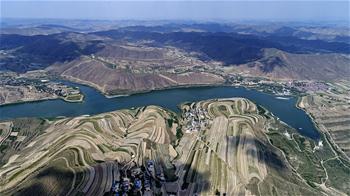GENEVA, June 18 (Xinhua) -- About 20 percent of underground drinking water supplies in Switzerland is seeing higher-than-normal levels of pesticide residues, prompting calls for tougher action to cut the costs of treating the water, local media said on Sunday.
A fifth of the samples seen in national monitoring data contained pesticide levels higher than the acceptable limit of 0.1 microgram per liter, with some measurement points even exceeding 70 percent, Swiss newspaper NZZ am Sonntag reported on Sunday.
Each year, Swiss farmers use more than 2,000 tons of pesticides to optimize yields, and the chemicals wind up in streams, lakes and groundwater that serves as the main source of drinking water in Switzerland, the report says.
Now water suppliers want stricter laws to protect the groundwater and more effective use of current regulations, saying only 60 percent of groundwater zones are effectively protected. Among their aims is to reduce the costs for treating the water.
"We expect the farmers to make do with less or no use of pesticides in the area of drinking water," said Martin Sager, director of the Swiss Gas and Water Industry Association. "We must avoid the fact that more and more new substances are entering the water."
Also, the vast majority of Swiss want local farmers to use fewer pesticides, according to a poll by the Zurich-based GfS research institute in early June.
About 65 percent of the surveyed want the government to enforce a lower usage of pesticides, while half prefer subsidies only to farms in organic farming. Three out of four people were totally against any pesticides ending up in streams and in drinking water.
A long-term study published by the Swiss Federal Office for the Environment says high levels of pollution poses a threat to the nation's biodiversity. A steady cocktail of herbicides, fungicides and insecticides used in farming, in particular, affects invertebrates.

















